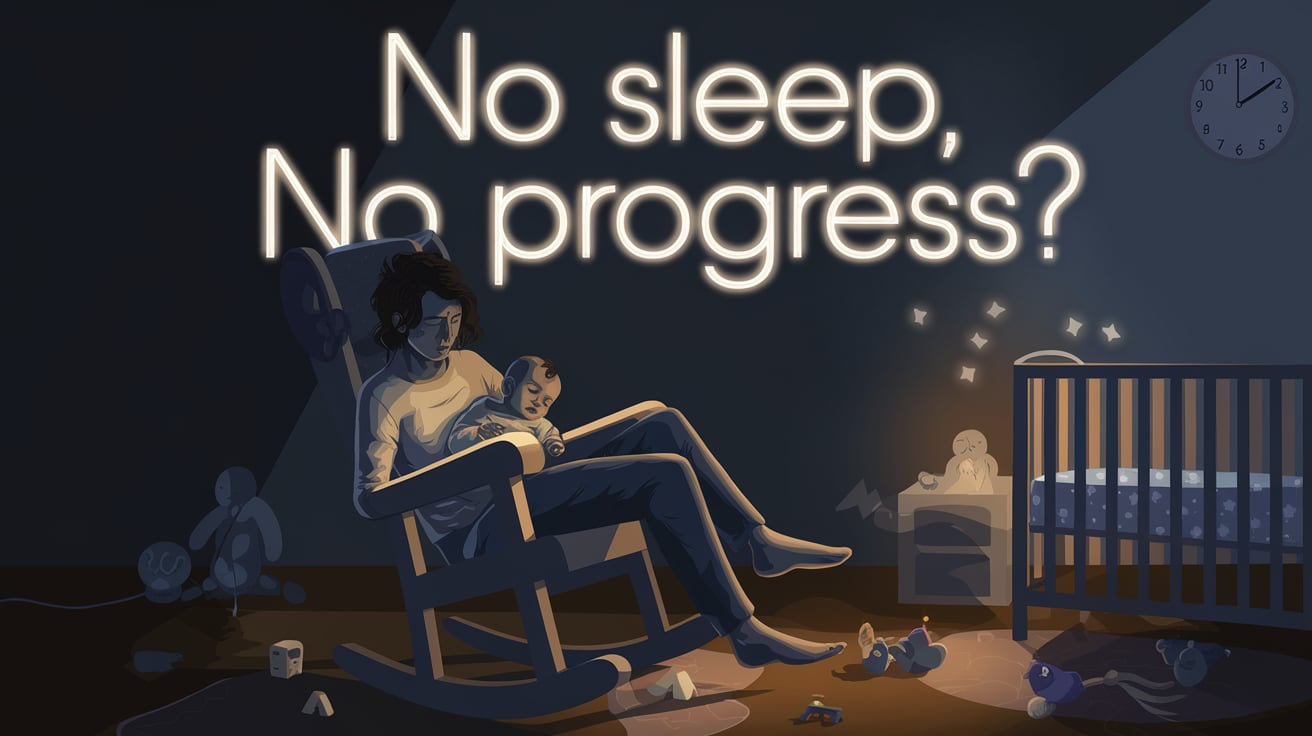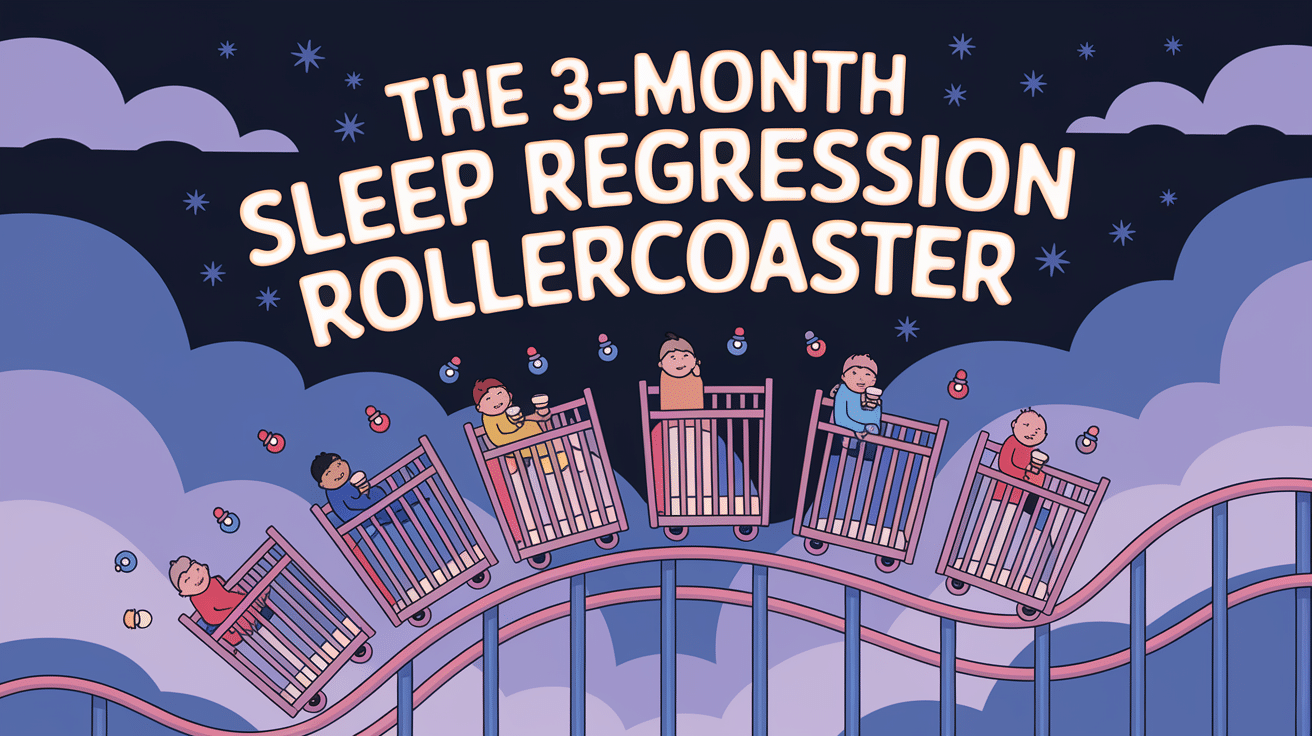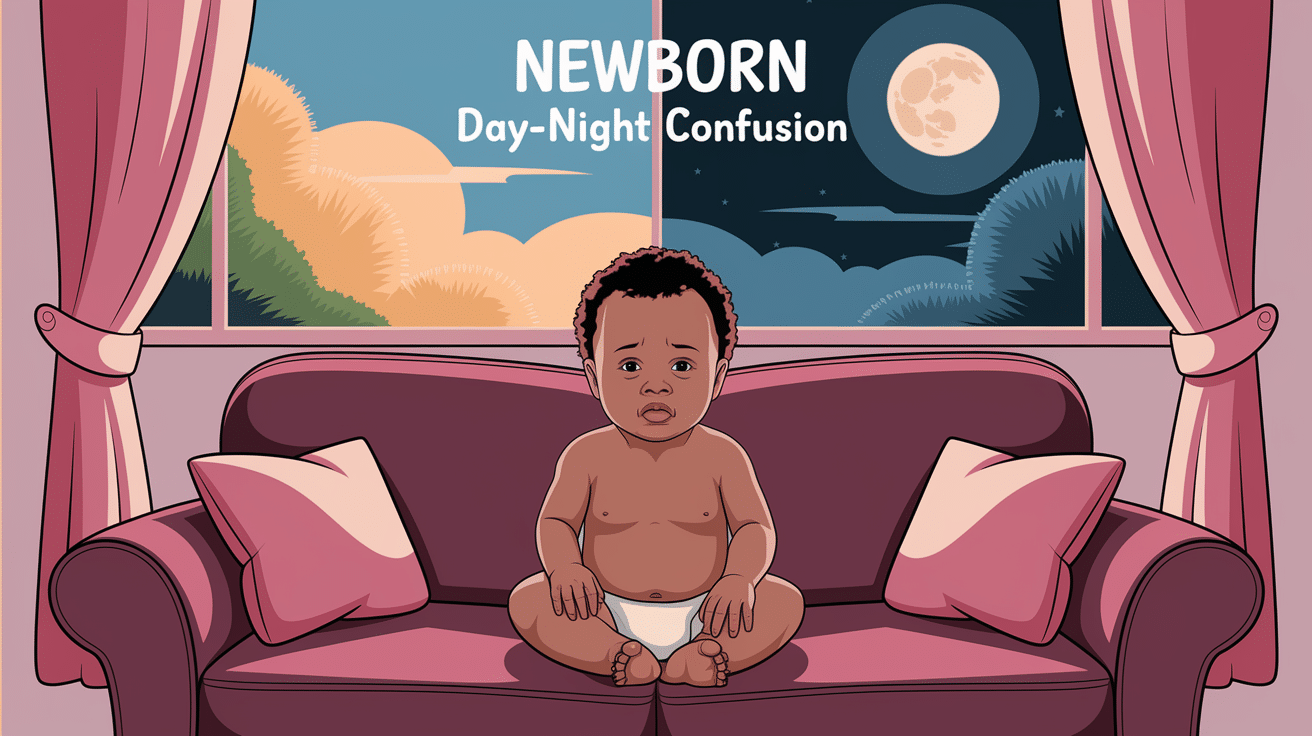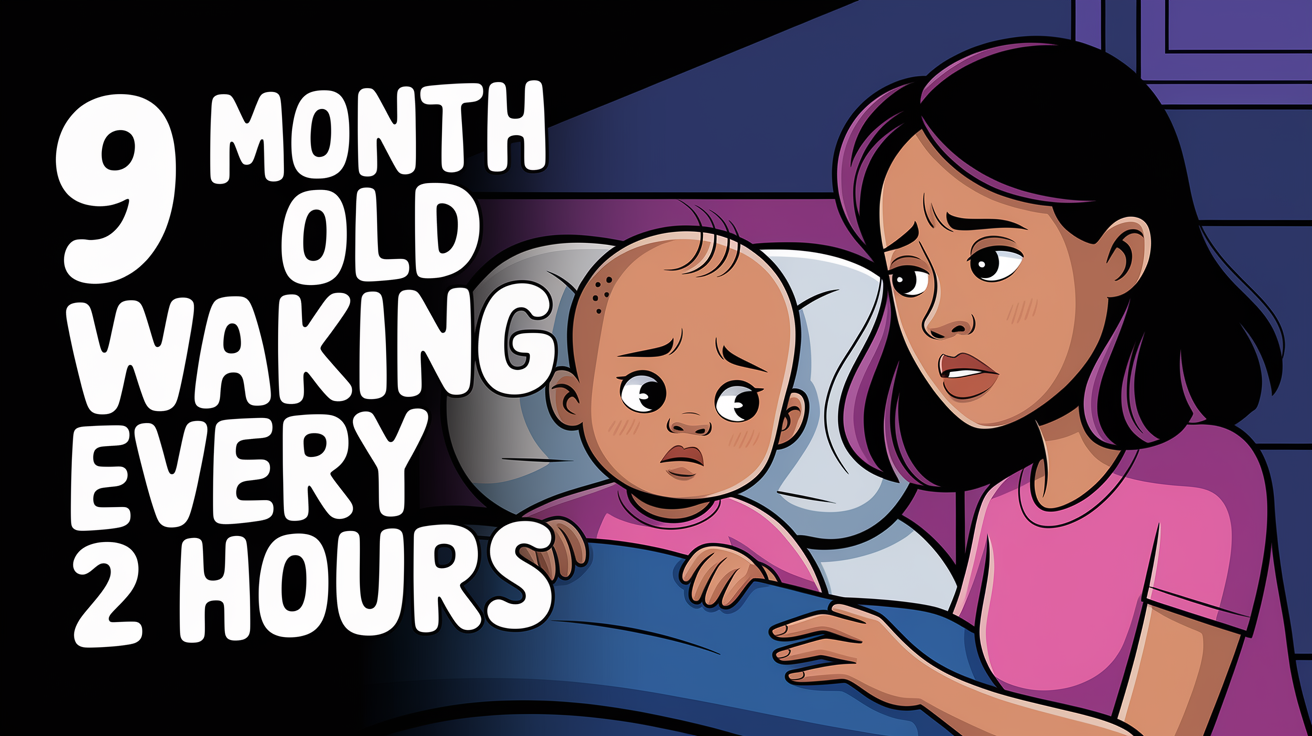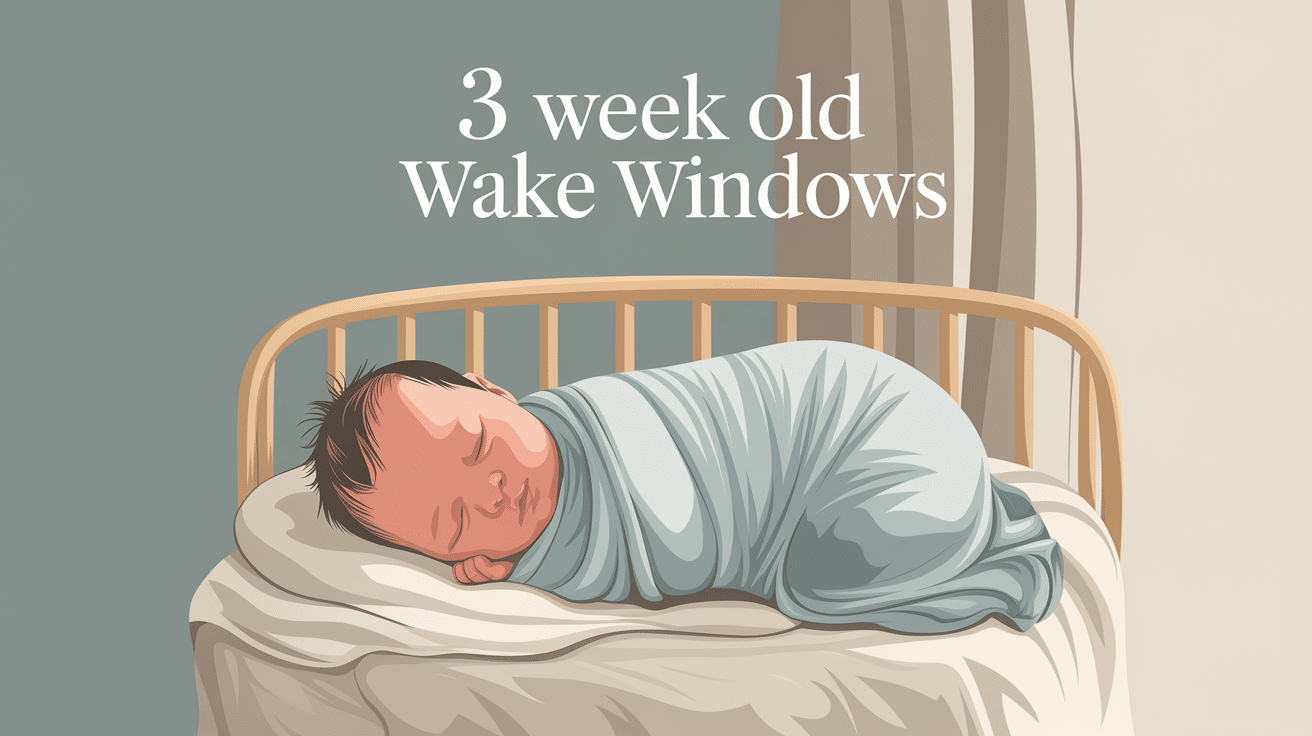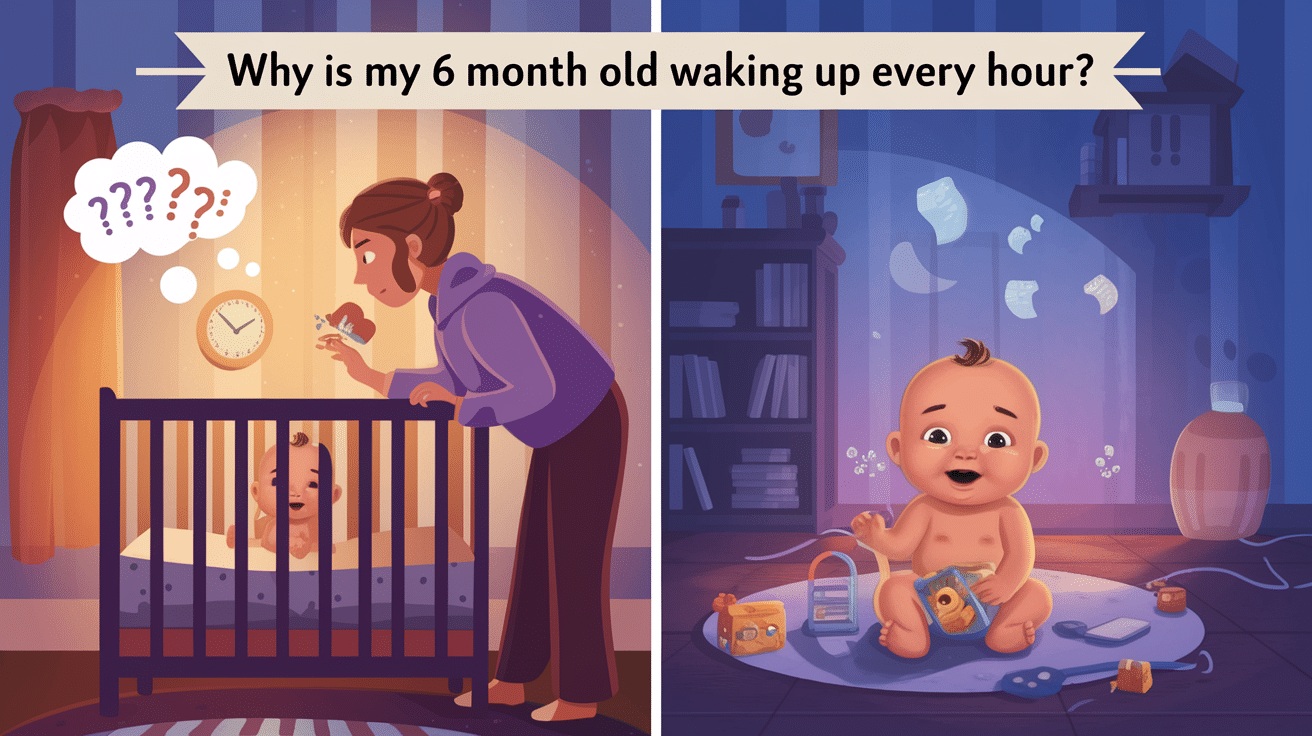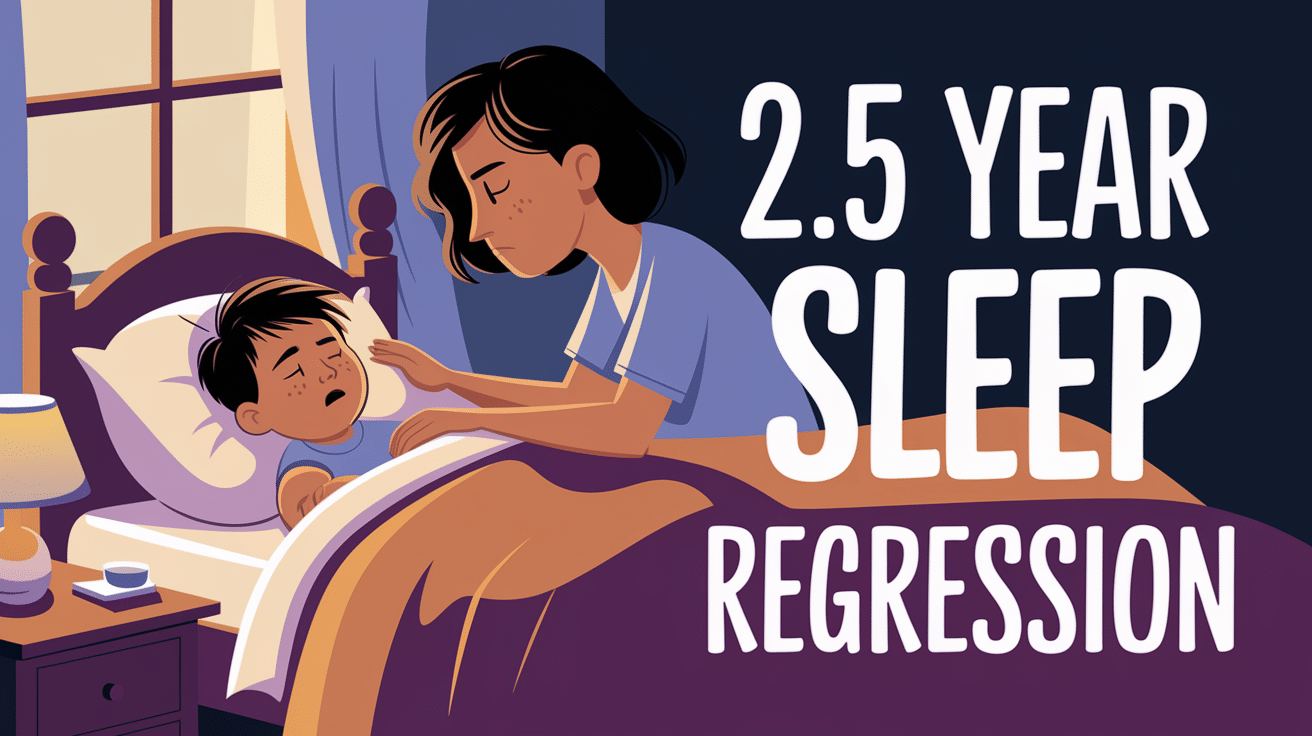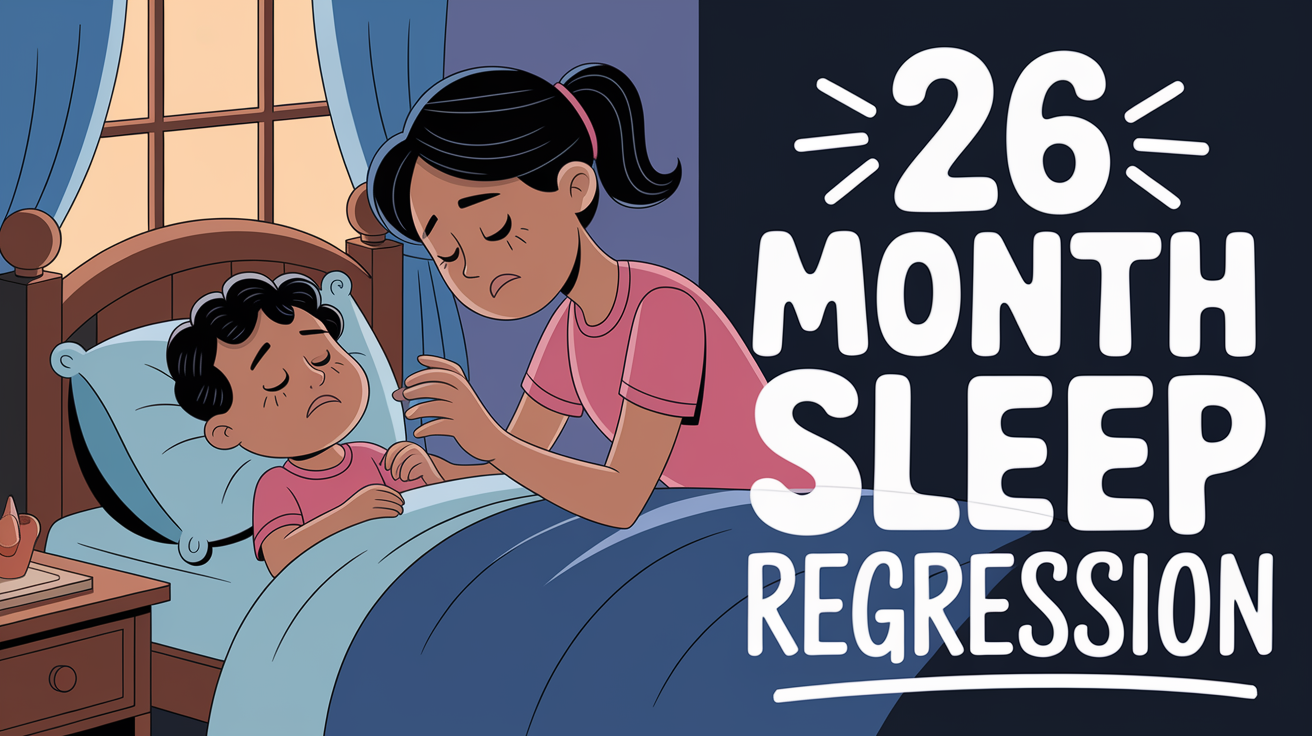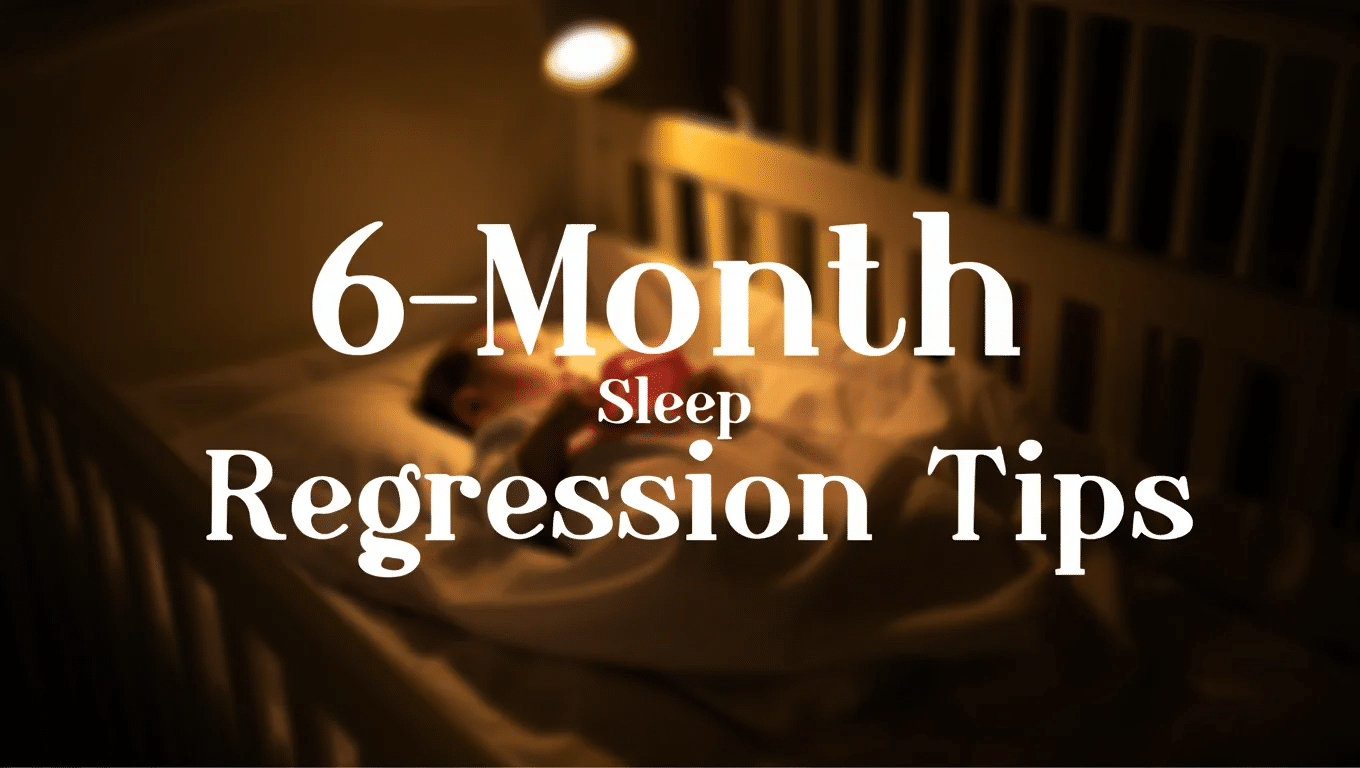
Is your 6-month-old suddenly waking up multiple times each night? This common sleep challenge affects many families just when parents hope sleep might be improving.
This guide will explain why your baby might be going through these night-wakings at the 6-month mark. You’ll learn about the typical signs that show your baby is struggling with sleep and not just being fussy.
Most importantly, this guide also provides practical solutions that really work for helping your little one sleep better. You’ll find easy-to-follow tips that tired parents can use right away, even when exhausted.
With the right approach, better sleep is possible for both you and your baby during this challenging phase.
Understanding the 6-Month Sleep Regression
Sleep regression at 6 months is a period when babies who were sleeping well suddenly start waking up more often at night.
This challenging phase typically lasts 2-6 weeks, though some babies may experience it for slightly longer. During this time, babies go through important growth milestones that significantly affect their sleep patterns and nighttime behaviors.
At 6 months, babies learn exciting new skills like rolling over, sitting up, and they may even start crawling. Their brains are growing rapidly, and they’re becoming much more aware of the world around them.
These physical and mental changes can make it harder for them to settle down, stay asleep, and may lead to more frequent night wakings and shorter naps.
Does Sleep Regression Happen with Every Kid?
Not every baby experiences sleep regression, but many do. According to HealthyChildren, it is normal for a 6-month-old to wake up during the night and then go back to sleep after a few minutes.
Parents should remember that sleep regression also shows that their baby is growing and developing properly.
With patience, understanding, and consistent bedtime routines, sleep patterns will gradually improve again as babies adjust to their new abilities.
Common Causes of Frequent Night Wakings at 6 Months

Many parents face sleep challenges when their baby turns 6 months old. Even babies who previously slept well might suddenly start waking up several times each night.
Understanding the common reasons behind these night-wakings can help parents find the right solutions for their little one’s sleep problems.
Here are some main causes to consider:
- Inability to Fall Asleep Independently: Babies who are rocked, fed, or held until fully asleep may not know how to self-soothe when they wake between sleep cycles. This can lead to calling out for help multiple times during the night.
- Hunger or Habitual Night Feedings: Some 6-month-olds still need nighttime calories, while others may have grown used to feeding at night even if they don’t physically need it anymore.
- Teething Discomfort: The pain of emerging teeth can wake babies from sound sleep. This discomfort is often worse at night when there are fewer distractions.
- Increased Mobility and Practicing New Skills: Babies who are rolling, sitting, or crawling may wake in the middle of the night to practice these exciting new skills.
- Separation Anxiety: Around 6 months, babies begin to understand that parents exist even when out of sight, causing worry when they wake alone.
- Environmental Factors Disrupting Sleep: Room temperature, noise, light, and uncomfortable clothing or bedding can all disturb a baby’s sleep.
Strategies to Improve Sleep for Your 6-Month-Old

At six months, babies can start developing better sleep habits, but they might still wake up several times at night. This can be exhausting for parents, but there are ways to help your little one sleep better and longer.
Here are some strategies you can use to improve your kid’s sleep routine:
- Establishing a consistent bedtime routine – Follow the same calming activities each night, like a bath, a book, and a lullaby.
- Encouraging self-soothing techniques – Give your baby chances to fall asleep on their own.
- Adjusting feeding schedules – Offer bigger feedings during the day to reduce night hunger.
- Providing daytime practice for new skills – Let your baby practice rolling, sitting, or crawling during awake time.
- Ensure a good sleep environment – Keep the room dark, quiet, and cool.
- Addressing teething pain – Use safe remedies for sore gums before bedtime.
Remember, every baby is different, and finding what works best for your little one may take some time and patience.
When to Seek Professional Help?

Most 6-month-olds wake during the night as part of normal development. However, sometimes, these sleep disruptions can signal something that needs medical attention.
Parents should watch for certain warning signs that suggest it’s time to talk with a healthcare provider. Parents should call their doctor if their 6-month-old.
Look out for these symptoms.:
- Sudden changes in sleep patterns
- Shows signs of illness like fever, unusual crying, or breathing problems
- Seems to be in pain during night wakings
- Is not growing properly or losing weight
- Has extreme fussiness that doesn’t improve with comfort
- Shows developmental delays
Sleep problems that continue for many weeks might need professional guidance, especially when they affect a baby’s mood, feeding, or development during the day.
Doctors can check for underlying medical issues causing frequent wakings. When regular approaches aren’t working, a pediatric sleep specialist can provide expert advice.
Tips for Tired Parents: Taking Care of Yourself, Too
When your baby wakes multiple times at night, your rest suffers. Taking care of yourself isn’t selfish—it’s necessary. Here are simple ways to protect your well-being during this exhausting stage.
- Nap When You Can: Sleep when your baby sleeps, even if it’s just for 20 minutes. Put aside household chores and use this time to rest your body and mind.
- Share Nighttime Responsibilities: Take turns with your partner for night feedings and diaper changes. If you’re parenting alone, don’t hesitate to ask family or friends for daytime help.
- Lower Expectations and Prioritize Rest: A spotless home isn’t important right now. Let some chores wait while you focus on getting the rest you need to care for your baby.
Remember, this stage is temporary. Though the nights seem difficult now, this difficult phase will pass. Most babies develop better sleep patterns as they grow and mature.
Final Thoughts
Remember, your baby waking up often at night is completely normal at this age. Many babies go through these sleep changes as they grow and learn new skills like rolling over, sitting up, or babbling.
Try to stick with the sleep routine you choose. It may take time, but your baby will slowly learn better sleep habits when you stay consistent. Small improvements are worth celebrating as you work toward more restful nights.
Don’t forget to take care of yourself during this tiring phase. A well-rested parent is better equipped to handle nighttime challenges.
With patience and the right approach, both you and your baby will soon enjoy more peaceful nights. Better sleep is ahead—hang in there! Many parents have walked this path before, and you will make it through, too.
If you’re interested in more informational content on mothers and babies, feel free to click here and explore other blogs that you might enjoy.
Frequently Asked Questions (FAQs)
How Much Sleep Does a 6 Month Old Really Need?
A 6-month-old typically needs around 14 to 15 hours of sleep in a 24-hour period. This usually includes 10 to 11 hours at night and 3 to 4 hours split across 2 to 3 daytime naps.
Should I Try White Noise for Better Sleep?
Many babies find white noise soothing because it mimics the sounds of the womb. It can help block out household noises and create a consistent sleep environment.
Is It Too Early to Sleep Train at 6 Months?
No, many pediatricians agree that sleep training can begin as early as 4 to 6 months, depending on your baby’s development and feeding needs.

















